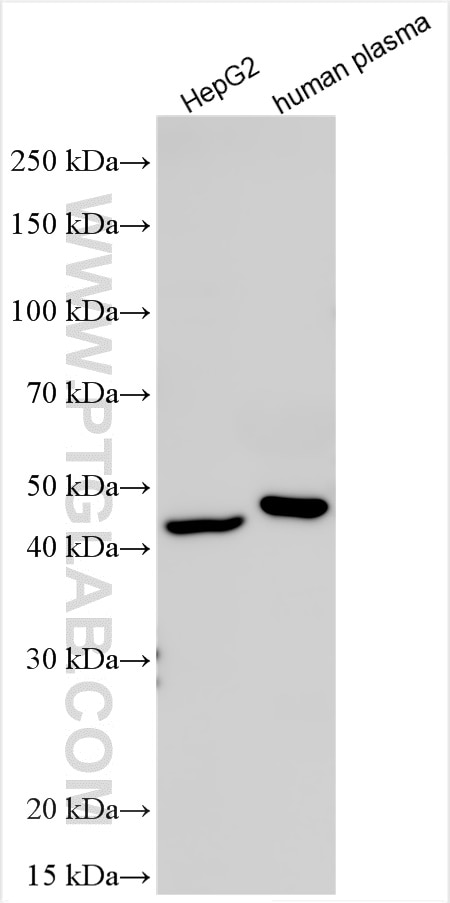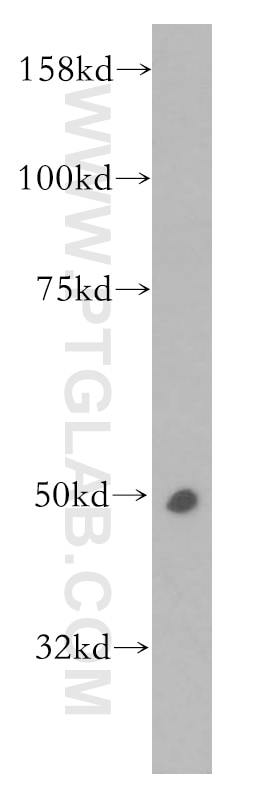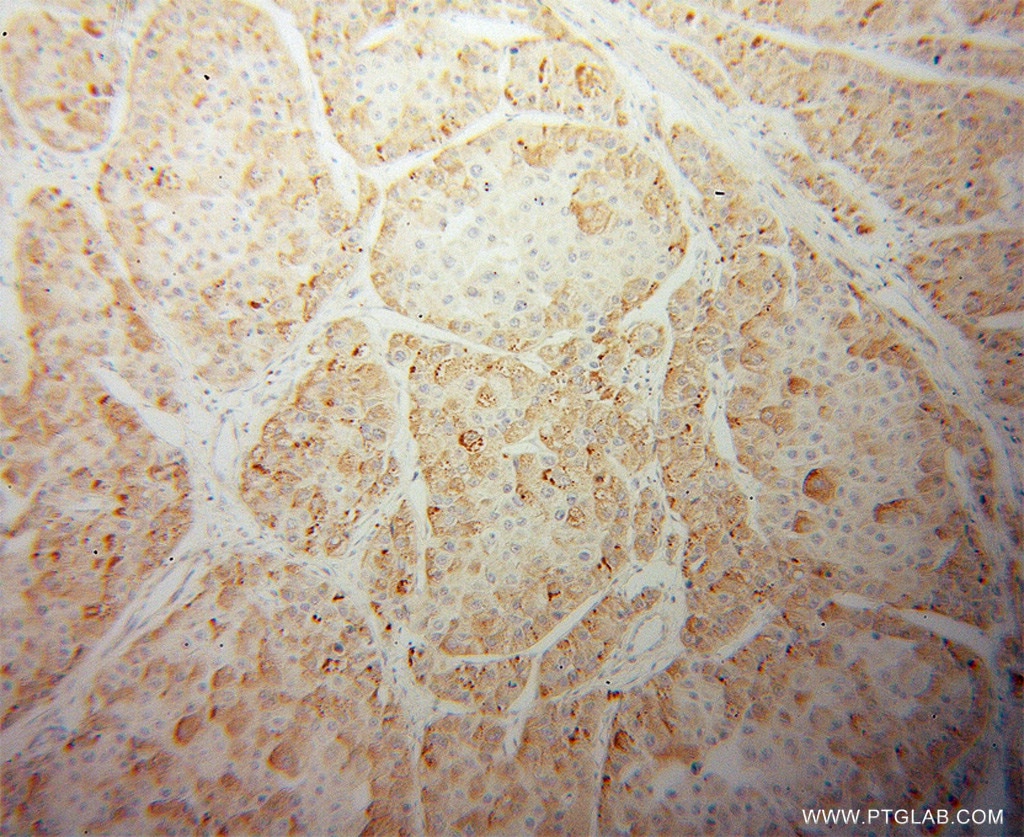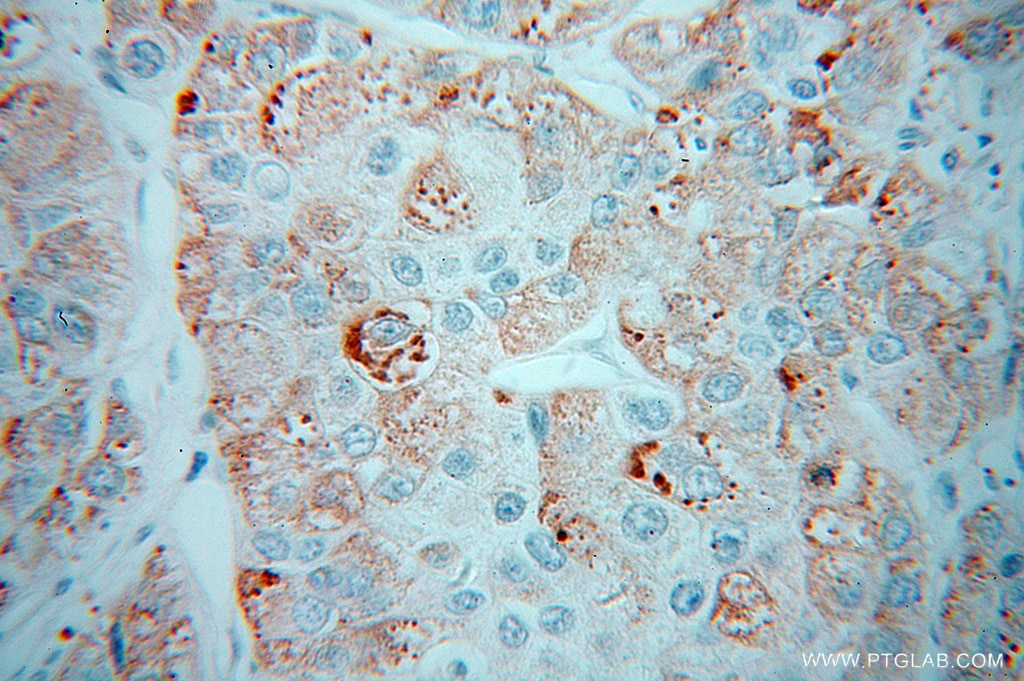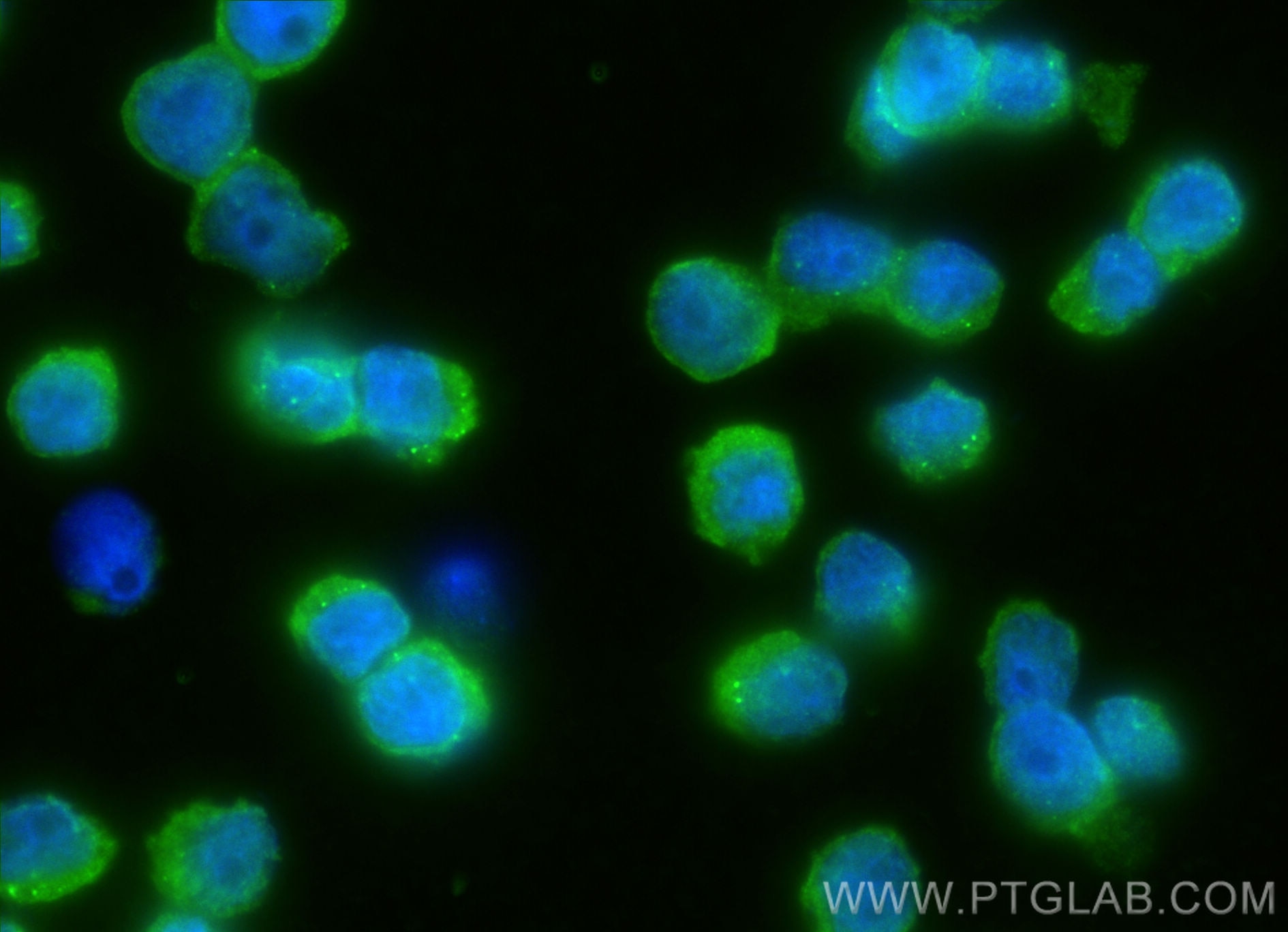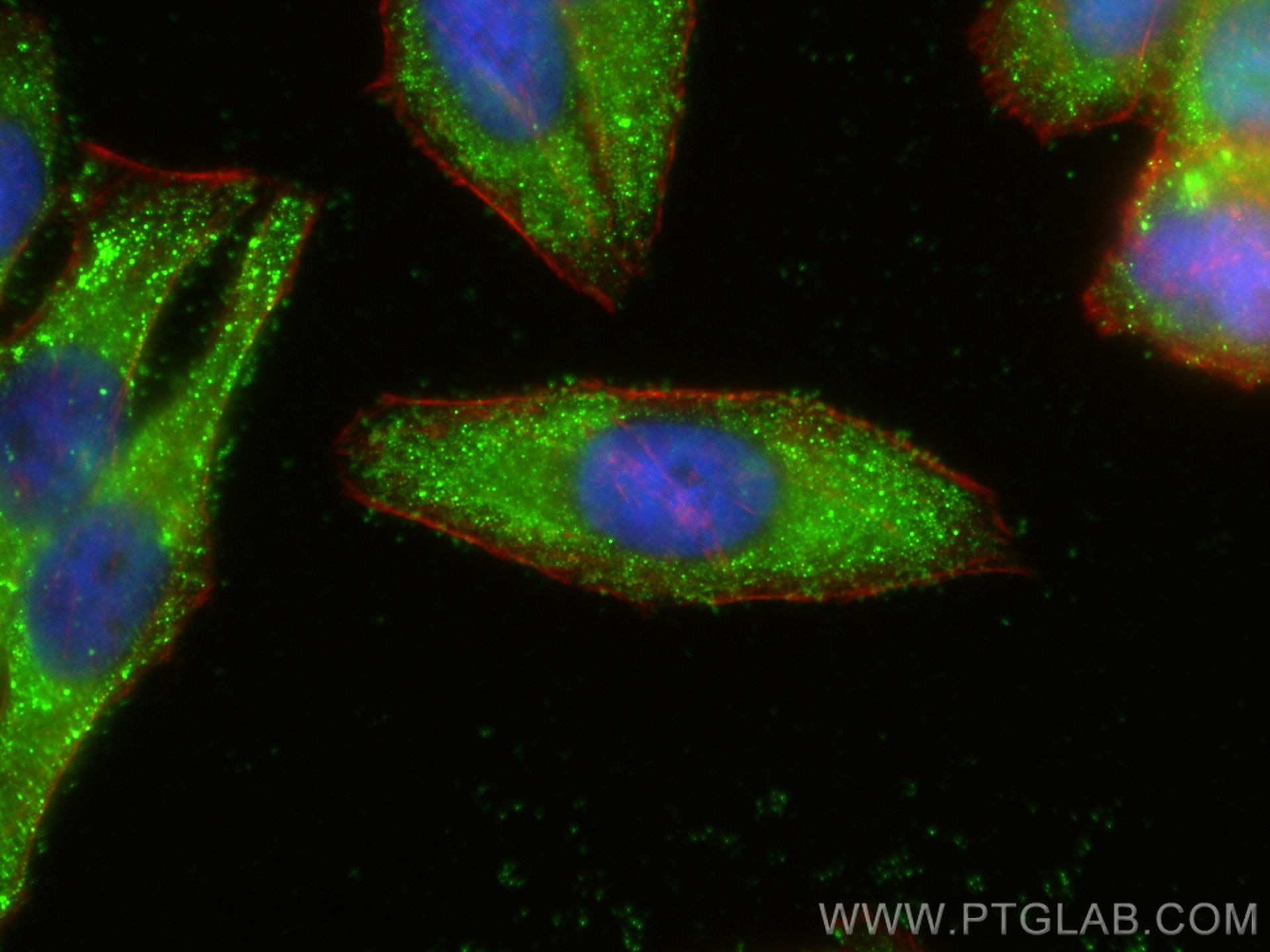Tested Applications
| Positive WB detected in | HepG2 cells, Raji cells, human plasma |
| Positive IHC detected in | human liver cancer tissue Note: suggested antigen retrieval with TE buffer pH 9.0; (*) Alternatively, antigen retrieval may be performed with citrate buffer pH 6.0 |
| Positive IF/ICC detected in | COLO 320 cells, HepG2 cells |
Recommended dilution
| Application | Dilution |
|---|---|
| Western Blot (WB) | WB : 1:1000-1:6000 |
| Immunohistochemistry (IHC) | IHC : 1:20-1:200 |
| Immunofluorescence (IF)/ICC | IF/ICC : 1:200-1:800 |
| It is recommended that this reagent should be titrated in each testing system to obtain optimal results. | |
| Sample-dependent, Check data in validation data gallery. | |
Published Applications
| IHC | See 2 publications below |
Product Information
13385-1-AP targets CPN1 in WB, IHC, IF/ICC, ELISA applications and shows reactivity with human samples.
| Tested Reactivity | human |
| Cited Reactivity | human |
| Host / Isotype | Rabbit / IgG |
| Class | Polyclonal |
| Type | Antibody |
| Immunogen | CPN1 fusion protein Ag4035 Predict reactive species |
| Full Name | carboxypeptidase N, polypeptide 1 |
| Calculated Molecular Weight | 458 aa, 52 kDa |
| Observed Molecular Weight | 40~50 kDa |
| GenBank Accession Number | BC027897 |
| Gene Symbol | CPN1 |
| Gene ID (NCBI) | 1369 |
| RRID | AB_2292159 |
| Conjugate | Unconjugated |
| Form | Liquid |
| Purification Method | Antigen affinity purification |
| UNIPROT ID | P15169 |
| Storage Buffer | PBS with 0.02% sodium azide and 50% glycerol , pH 7.3 |
| Storage Conditions | Store at -20°C. Stable for one year after shipment. Aliquoting is unnecessary for -20oC storage. 20ul sizes contain 0.1% BSA. |
Background Information
Human carboxypeptidase N (CPN), a member of the CPN/E subfamily of "regulatory" metallo-carboxypeptidases, is an extracellular glycoprotein synthesized in the liver and secreted into the blood, where it controls the activity of vasoactive peptide hormones, growth factors and cytokines by specifically removing C-terminal basic residues. Normally, CPN circulates in blood plasma as a hetero-tetramer consisting of two 83 kDa (CPN2) domains each flanked by a 48 to 55 kDa catalytic (CPN1) domain. The C terminal region of the CPN1 subunit differs from all other family members in that it contains numerous basic residues. Proteolysis at these sites apparently happens either constitutively in the blood or during processing and secretion from the liver.
Protocols
| Product Specific Protocols | |
|---|---|
| WB protocol for CPN1 antibody 13385-1-AP | Download protocol |
| IHC protocol for CPN1 antibody 13385-1-AP | Download protocol |
| IF protocol for CPN1 antibody 13385-1-AP | Download protocol |
| Standard Protocols | |
|---|---|
| Click here to view our Standard Protocols |
Publications
| Species | Application | Title |
|---|---|---|
Front Pharmacol High Expression of RAI14 in Triple-Negative Breast Cancer Participates in Immune Recruitment and Implies Poor Prognosis Through Bioinformatics Analyses. | ||
Cancer Cell Int Carboxypeptidase N1 is anticipated to be a synergy metrics for chemotherapy effectiveness and prognostic significance in invasive breast cancer |
